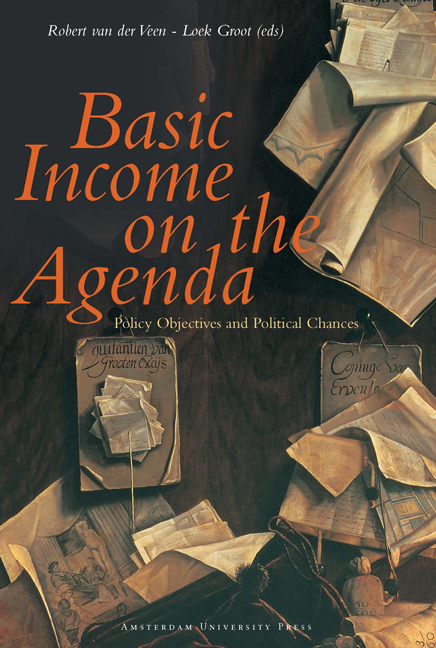The History of an Idea:Why Did Basic Income Thrill the Finns, but not the Swedes?
Published online by Cambridge University Press: 23 January 2021
Summary
Introduction
In two of the Scandinavian countries – Denmark and Finland – the idea of an unconditional basic income has received much attention. However, in Sweden and Norway it has been almost a non-issue. The differences can be seen in the intellectual debates as well as in the activities of the political parties. At the BIEN conferences the participation from Denmark and Finland has been regular, whereas Swedish and Norwegian interest has been curiously low. In this book there is an article devoted to the Danish case. Here I shall look at the fate of the idea in Sweden and Finland. Why did basic income appeal to the Finns more than to the Swedes?
The first part of the article presents the debate in Sweden. The focus is on the most important proponents and on the stands of the political parties. The second part deals with Finland. Who were the proponents? Who were sceptics or outright opponents? How have the political parties reacted? In the third part I discuss the differences and some possible reasons why the idea of a basic income has had a stronger political impact in Finland.
The Swedish Proponents of a Basic Income
Three authors have proposed some version of a basic income in Sweden: Gunnar Adler-Karlsson at the end of the 1970s, Thomas Ehrenberg 10 years later, and Lars Ekstrand in the 1990s. All three wrote as if the idea had never been introduced in Sweden before. Although writing independently of each other, they had a common critical stand towards the social democratic principles of ‘full employment’ and ‘the work principle’ (‘arbetslinjen’). According to these principles everybody should have the right to a job, but also a duty to work. Adler-Karlsson's book appeared in Danish with the title ‘Nej til fuld beskeftigelse. Ja til materiel grundtryghed’ (No to full employment. Yes to a material basic security), but his Swedish publisher made him change the title into the less offensive ‘Tankar om den fulla sysselsättningen’ (Thoughts on full employment). Ehrenberg – who published ‘För en frihetlig socialism’ (For a libertarian socialism) himself – contrasted ‘the politics of free time’ to the ‘politics of full employment’. Ekstrand's works focused on a critique of the quest for full employment, instead of which he proposed a Project for the liberation of labour (‘arbetsfrihetsprojekt’).
- Type
- Chapter
- Information
- Basic Income on the AgendaPolicy Objectives and Political Chances, pp. 224 - 237Publisher: Amsterdam University PressPrint publication year: 2000
- 7
- Cited by



